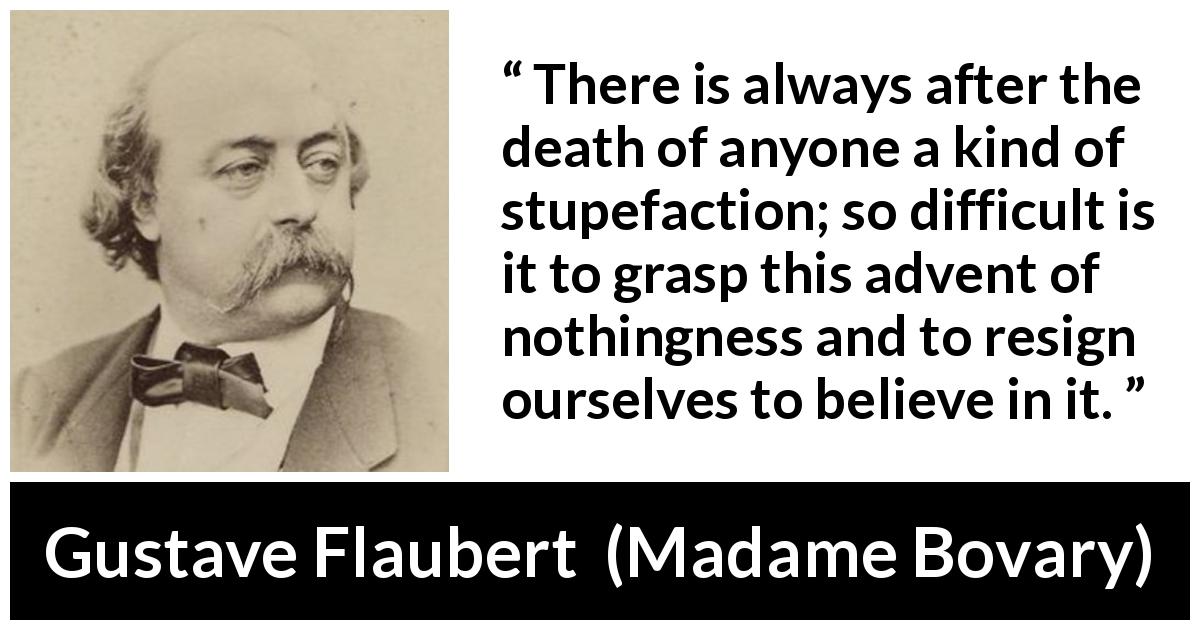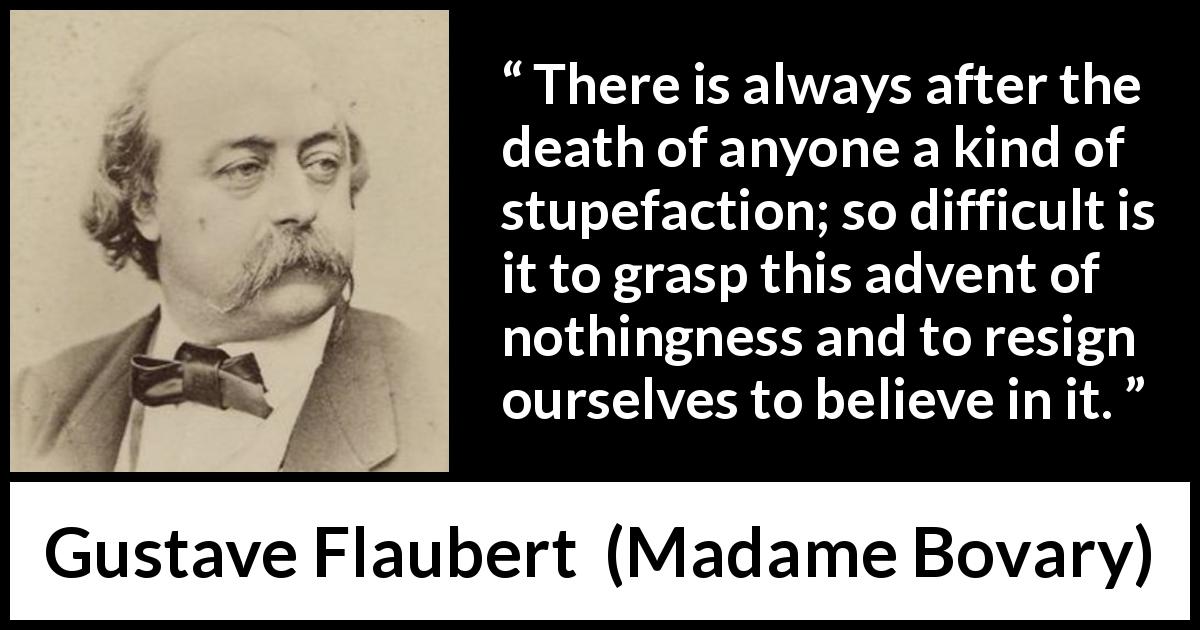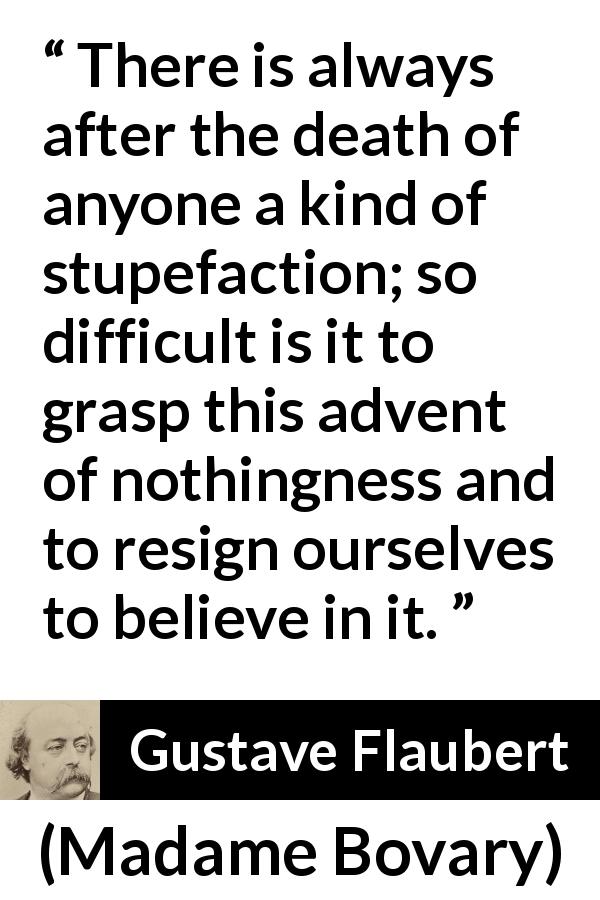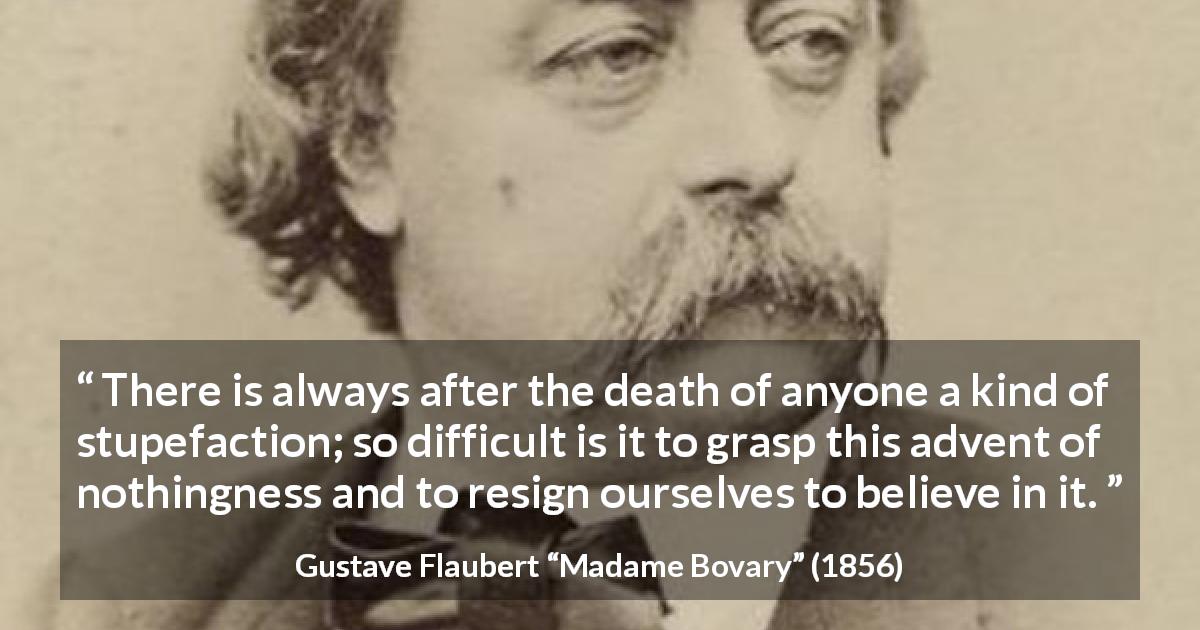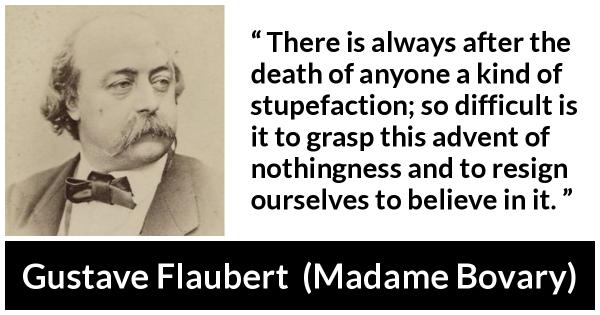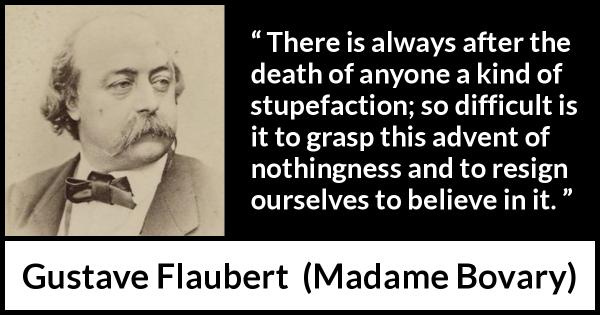“ There is always after the death of anyone a kind of stupefaction; so difficult is it to grasp this advent of nothingness and to resign ourselves to believe in it. ”
Gustave Flaubert, Madame Bovary (1856). copy citation
| Author | Gustave Flaubert |
|---|---|
| Source | Madame Bovary |
| Topic | death nothingness |
| Date | 1856 |
| Language | English |
| Reference | |
| Note | Translated by Eleanor Marx-Aveling |
| Weblink | http://www.gutenberg.org/files/2413/2413-h/2413-h.htm |
Context
“And Emma began to laugh, an atrocious, frantic, despairing laugh, thinking she saw the hideous face of the poor wretch that stood out against the eternal night like a menace.
«The wind is strong this summer day, Her petticoat has flown away.»
She fell back upon the mattress in a convulsion. They all drew near. She was dead.
Chapter Nine There is always after the death of anyone a kind of stupefaction; so difficult is it to grasp this advent of nothingness and to resign ourselves to believe in it. But still, when he saw that she did not move, Charles threw himself upon her, crying—
«Farewell! Farewell!»
Homais and Canivet dragged him from the room.
«Restrain yourself!»
«Yes.»” source
«The wind is strong this summer day, Her petticoat has flown away.»
She fell back upon the mattress in a convulsion. They all drew near. She was dead.
Chapter Nine There is always after the death of anyone a kind of stupefaction; so difficult is it to grasp this advent of nothingness and to resign ourselves to believe in it. But still, when he saw that she did not move, Charles threw himself upon her, crying—
«Farewell! Farewell!»
Homais and Canivet dragged him from the room.
«Restrain yourself!»
«Yes.»” source
